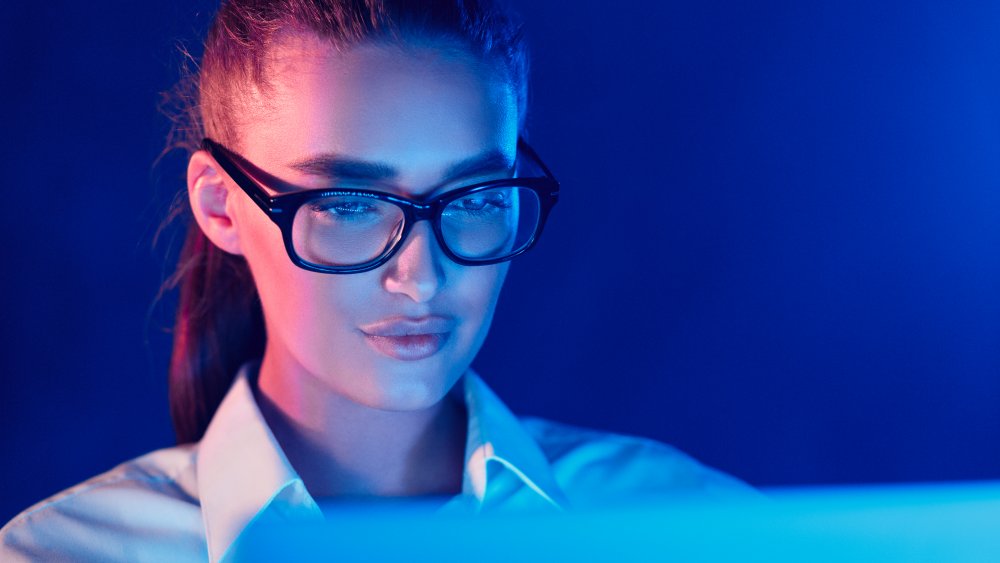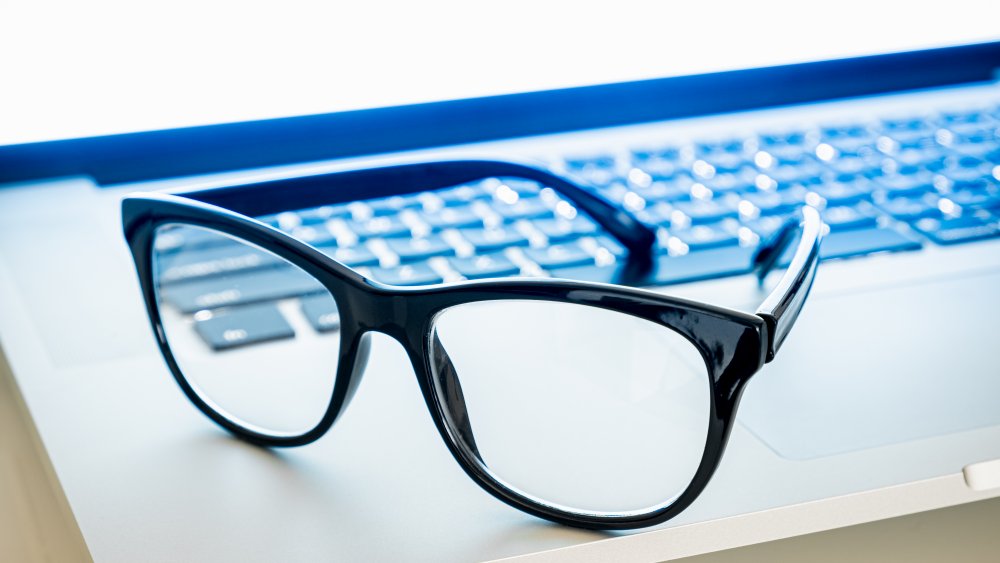Do Blue Light Blocking Glasses Actually Work?
It may be surprising to note that most blue light is actually emitted from the sun. However, in the age of modern technology, gadgets like our phones, TVs, computers, and tablets have been increasingly emitting blue light (via WebMD). So what exactly does blue light do, and are those trendy blue light blocking glasses you've seen all over Instagram really worth it?
Blue light actually has several energizing effects such as increasing alertness, stimulating cognitive function, and positively affecting our mood. As you can imagine, these effects, while beneficial during the day, actually become problematic later in the evenings. The use of digital devices closer to bedtime has been shown to decrease sleep-inducing melatonin production, negatively impacting the body's circadian rhythm (via Well+Good).
Blue light blocking glasses have flooded the market in recent years, coming in various styles and a range of affordable pricing. The lenses claim to be specifically crafted to block or filter out blue light emitted from digital screens. Companies thus claim their products will help decrease eye strain, fatigue, headaches, and even reduce potential damage to the retina (via Cleveland Clinic).
Recommendations and management of symptoms
Despite their claims and even rave customer reviews, the American Academy of Ophthalmology currently does not recommend blue light blocking glasses (via American Academy of Ophthalmology). The consensus amongst the medical community seems to be that the eye strain, fatigue, blurry vision, and headaches you may be experiencing are actually more likely due to our digital habits as opposed to blue light itself. Hours of staring at screens cause our eye muscles to be constantly contracted and decrease the frequency of blinking. This can lead to headaches, blurry vision, dry eyes, and various other symptoms.
As is true with all things, balance seems to be key when it comes to digital habits. Ophthalmologist Dr. Rishi Singh recommended to the Cleveland Clinic that people take the following measures instead of purchasing blue light blocking glasses: practicing the 20-20-20 rule, using lubricating eye drops regularly, and sitting arm's length away from your screen. The 20-20-20 rule recommends that after every 20 minutes of screen time, you take a break and look at an object 20 feet away for 20 seconds. This helps the muscles of the eye relax and can decrease strain and fatigue.
So the next time you feel like your eyes are going to pop out of your head, step away from your screen and take a little break. It's important to listen to and take good care of your eyes, for they're the only pair you get.


